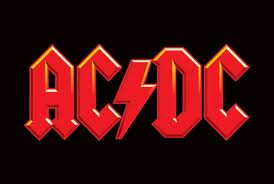
When Is That Band Not THAT Band Anymore?
There are just ten shows left in AC/DC’s current tour. In fact, these could be the last AC/DC shows ever.
Unfortunately for anyone with tickets to these (currently postponed) shows, they won’t actually be seeing AC/DC.
- Singer Brian Johnson is down for the count because of serious hearing issues. His replacement for these final gigs has yet to be named.
- Drummer Phil Rudd is stuck in New Zealand after months of serious legal trouble.
- Guitarist Malcolm Young retired in 2014, felled by cancer, heart disease and dementia. His nephew, Steve Young, took his place, just as he did for a US tour in 1988.
So who’s left? Angus, of course. Bassist Cliff Williams. And, er, that’s it.
Here’s the question: Is it ethical to present AC/DC to fans when they’re only at 40% strength? (Actually, I’d argue that it’s less than 40%; you have to give more weight to the lead singer.)
The controversy over when a band stops being THAT band has swirled for decades. The original line-up of The Platters ceased to be in 1970 yet there’s still a group with that name with a membership that has regenerated many times. There was a version of Frankie Goes to Hollywood that featured just one member from the “Relax” years–and his name wasn’t Holly Johnson. I have a chance to see The Who again in about a month, but with just Pete and Roger left, something doesn’t feel right. And should Billy Corgan still be trading on the name “Smashing Pumpkins?”
In other words, what makes THAT band THAT band? How many people does it take?
Salon.com picks up the thread.
Of course, lineup changes aren’t necessarily fatal to bands or their creative output. R.E.M. kept going after Bill Berry left the group in 1997, while Alice In Chains eventually regrouped with vocalist William DuVall assuming the lead vocal spot in place of the late Layne Staley. Death Cab for Cutie has soldiered on without core member Chris Walla, whose instrumental and production contributions shaped the beloved indie-rock group’s sound, while Wilco leveraged early lineup turmoil for creative benefit. And it’s not just rock band dealing with lineup instability, either: R&B troupe Destiny’s Child weathered lineup changes back during its heyday, while En Vogue currently tours as a trio with two original members.
Yet for loyal fans, any substitutions are often dealbreakers: A Dallas Observer piece on ATDI’s switch called the announcement “a big cheat to fans who looked forward to the return of all the main forces” and asked, “How is this any different from the projects that Bixler-Zavala and Rodriguez-Lopez have done together without [Ward], including De Facto, the Mars Volta, Antemasque and their solo records?” R.E.M. fans still argue about the band’s output pre- and post-Bill Berry. In Cheap Trick circles, meanwhile, there are purists who refuse to see the band without Carlos behind the kit, while even the mere possibility of Rose fronting AC/DC has angered countless fans (especially those with tickets to the postponed shows). The ire is understandable: New lineup configurations often do change a group’s chemistry, and an act is often greater than the sum of its parts: It isn’t just the music, but also who performs those songs, that makes a band a band.



I suppose Kraftwerk have a solution for everybody. Just dress up and no one notices. Thin Lizzy is also interesting case study.